|
Bands
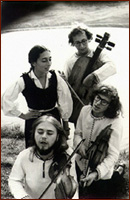
|
|
Kolinda
1973 - 1979 | 1981 - ...
Regarded as the renovator of Hungarian music in the seventies and eighties,
Kolinda draws its name from a style of songs sung in procession,
at Christmas time, by the children in search of offerings in the villages.
It is at the Institute of Popular Studies of Budapest that the members of Kolinda discovered the work done on the
country music at the beginning of the twentieth century by the composers Bartok and Kodaly.
If those never sought to play this agrarian music, Kolinda has on the other hand brought it downtown and
worked over again to revivify it. The band even collected itself in Hungary, but also in Bulgaria and Romania.
While being based on the traditional music, Kolinda does not seek to reproduce a falsified folklore.
Responsible for history and imagination, Kolinda creates an oneiric universe, associating country songs
and asymmetrical rhythms, jazz improvisations and personal compositions illustrated by
texts borrowed from contemporary Hungarian poets.
Their instruments come from Balkans, of Iran, of North Africa and Turkey.
Kolinda diverts them of their usual function, uses them as symbols and mingles them with modern instruments.
Dissolved in 1979, Kolinda was reformed two years later on the initiative of Peter Dabasi,
while joining the Makam group first of all. Since 1984, Kolinda has been playing again under its only name
and has published several discs, mainly composed by Peter Dabasi.
In 1996 appears the album Osz, testifying to the course carried out by the three founding members of Kolinda
(Agnès Zsigmondi, Ivan Lantos et Peter Dabasi) since their separation. It offers several old deeply
worked over again pieces, as well as new compositions. Since this reformation has remained without a future,
Peter Dabasi has took again the musical direction of the group which is still alive today.
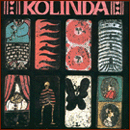 |
Kolinda
I
1976 |
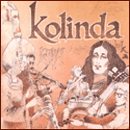 |
Kolinda
II
1977 |
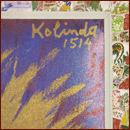 |
Kolinda
1514
1979 |
 | Kolinda
Osz
1996 |
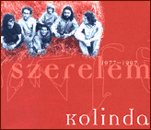 | Kolinda
Szerelem
1997 |
"Kolinda is without question one of the bands who represents today the most
sophisticated, open, sensitive and most refined work in traditional music." Le Monde
"Kolinda attempts to make progress yesterday's music while making it
familiar to the Hungarians of today. The group creates a new musical language." Le Bulletin du Théâtre de la Ville
"From central Europe, one of the most remarkable folk groups that exists."
Le Nouvel Observateur
"Let the inexhaustible richness of central European folklore bring us regularly
other discoveries as captivating." L'Impartial
"These young ones of strong character are determined to implant into our modernismen the values and
unalterable beauty of a sensitive and intelligent past." Chansons et Compagnie
"It is sometimes as pure as Gregorian, often as blazing as a revolt.
Worthy, generous but deprived of any demagogy." Télérama
"Kolinda, it was the great shock !" L'Escargot
"Kolinda is an extremely attaching band." Best
"It is difficult to restore on paper the beauty, the emotion and the immense joy
which emanate from a public intervention of Kolinda. A band which, truly, makes you happy."
Rock & Folk |
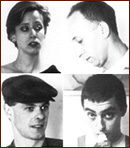
|
|
Transylvania
1982 | 1983
Funky music with Bulgarian taste ! Transylvania played many covers from the forties
to the sixties : Samba, Chachacha, Jazz, Rythm'n Blues and Rock'n roll. A new reading of the
cuban rhythms which ignited the fifties, the living fury of the generation of rockers and pop idols,
the whole being, of course, seasoned with the strange signature of Transylvania. A journey with
Eroll Gardner, Charlie Parker, The Beatles, The Kinks,
Chuck Berry, Sonny Rollins and also some original tunes...
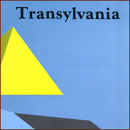 |
Transylvania
Est-Ouest
1984 |
|
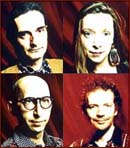
|
|
Spondo
1991 | 1994
The music of Spondo is a mosaic of instruments, musicians, styles.
In this puzzle, the old one and the new one, the East and the Occident, reality and the imaginary one,
the reason and the illusion tangle up as the Mediterranean cultures does in the middle of the Bosphorus.
Where is creation, where is the tradition ? The music composed by Hughes de Courson wants to be
"in the service of the instruments and the interpreters". Spondo is the work of musicians linked
by a common passion : the listening of musics of the world and the collection of the strangest instruments
used like sources of new sonorities. The language is imaginary : the sung words do not refer to a
country and give for each listener the impression of a rustle of foreign language completely
delivered from the vulgarity of the meaning.
In 1992 Spondo took part in several out-standing shows : Nouba Beshtakeïa, presented at the Opera of Cairo
and at Wakhalet el Khoury's palace, with the Philharmonic of the Opera directed by Ahmed al Saïdi, and also Yam,
presented in Nazareth and Jerusalem with the Bulgarka Junior Quartet, Arab Music Ensemble of Tarshiha, choral
society A Choeur Joie from Tel Aviv, and Symphonic Ensemble David's Harp from Jerusalem. Yam joined together,
on the initiative of the Embassy of France in Israel, Bulgarian, Jew, Palestinian, French and Hungarian musicians.
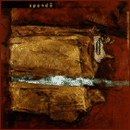 |
Spondo
Spondo
1992 |
"Voices as apart from space and instruments of all cultures raise, in a strange ceremonial,
a landscape where our Middle Ages finds the Eastern laments and monotonous songs to
contemplate the birth of a new world". Le Monde de la Musique
"Some music of today which is more oneiric than ethnomusicologic". Le Télégramme
"Spondo or the alchemy of musics". Ouest France
"The borders of time and space are abolished". Télérama
|
|

